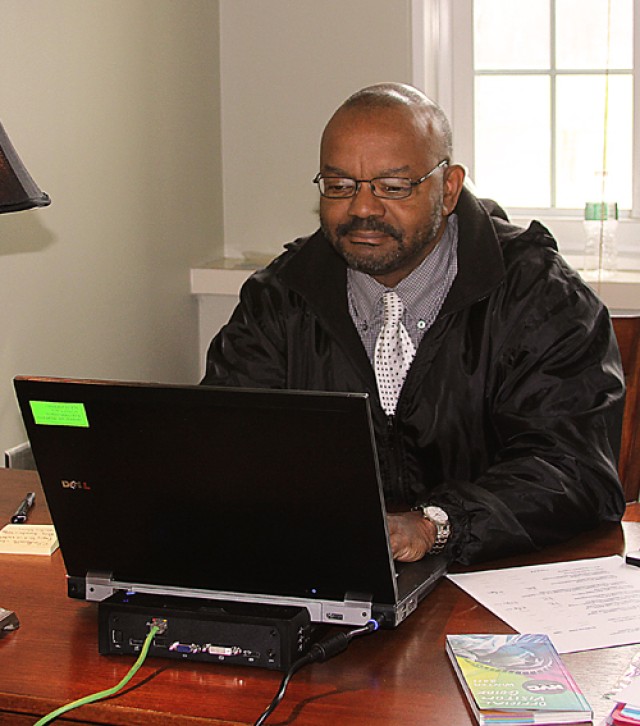WEST POINT, N.Y. (April 27, 2011) -- In keeping with the Army Family Covenant, a new Army program called the Survivor Outreach Services began a joint effort in 2008 with the collaboration of the Installation Management Command; Family and Morale, Welfare and Recreation; Casualty and Mortuary Affairs Operation; the Army National Guard and the Army Reserve.
The program provides support and services to active, reserve and Army National Guard surviving Families of fallen Soldiers.
Retired Maj. Sandy McClain from Fort Benning, Ga., is the new SOS coordinator for West Point.
"When I heard of this position being offered, I thought this would be right up my alley because I've been working with survivors for most of my career," McClain said. "It's a tremendous shock for someone who loses somebody. Usually the first thing a survivor must deal with is loneliness. It gets easier to deal with as time goes on, but you can't change it.
"One of the major challenges is for them to put one foot in front of the other. So if there is something we can do to lighten their load, we should do it."
McClain's experience as an Army chaplain allows him to have an idea what he wants to do for the community.
"I want to make sure the community knows that we are here and everyone and anyone (who is a survivor) should contact us," McClain said. "I want to educate the community on what survivors go through.
"One day you're here, and the next day the whole perspective changes. We send our sons and daughters into the military hoping they will come back. Sometimes they don't," he added.
One way to get the word out about the SOS program is by planning a meet and greet event with surviving Families here in the community, which McClain is arranging for early June.
McClain said the West Point program is relatively small because there are only five surviving Families currently involved in the program.
"This may change once people find out about (our program)," he said. "We contacted about 52 Families, but only five wanted to avail themselves to the program."
There are SOS coordinators in the area at Camp Smith in Peekskill and Fort Hamilton, Brooklyn.
"There are a lot of people (reaching out to survivors) in this area," he said.
The reasons for survivors not opening themselves up to the SOS program are often complex.
"Some may not want to have anything more to do with the military," he said. "Or maybe they have been survivors for a long time (and feel they can handle things on their own)."
The point McClain wants to get across is that SOS is here if and when survivors want to take advantage of their services. It doesn't matter how the Soldier died or how long it has been since, as there is no time limit on the availability of services.
As Lt. Gen. Rick Lynch, IMCOM commander, said in a commentary in the March 24 issue of the Pointer View, "It's important for survivors to know that the support is there, they are not alone and are part of the Army Family for as long as they want to be."


Social Sharing